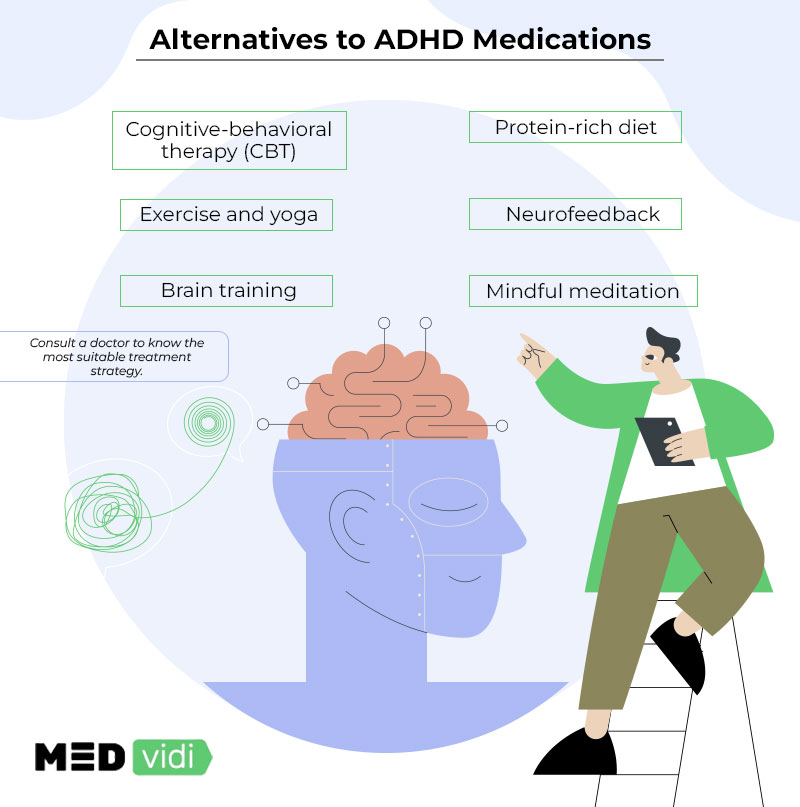Checking Out Effective ADHD Therapy Options for All Ages
The complexities of Interest Deficiency Hyperactivity Problem (ADHD) present special difficulties throughout various age groups, demanding a comprehensive exploration of reliable treatment choices. A mix of behavior treatments, pharmacological interventions, and way of living adjustments has shown pledge in addressing the diverse needs of people with ADHD.
Recognizing ADHD and Its Influence
Attention-Deficit/Hyperactivity Disorder (ADHD) is a neurodevelopmental problem characterized by persistent patterns of inattention, hyperactivity, and impulsivity that can substantially influence various aspects of an individual's life. It normally shows up in childhood, although symptoms can persist right into their adult years. The core signs of ADHD can interrupt educational efficiency, impede social interactions, and complicate job-related ventures.
Individuals with ADHD often deal with preserving focus on jobs, organizing activities, and adhering to with on instructions, which can bring about academic underachievement (Depression Treatment). In social contexts, impulsivity might lead to difficulties in creating and sustaining partnerships, as people may disrupt conversations or make rash decisions without considering effects
Additionally, ADHD can co-occur with various other psychological health problems, such as anxiety and clinical depression, additionally making complex diagnosis and therapy. The irregularity in symptom discussion implies that ADHD can influence individuals in a different way, necessitating a tailored method to monitoring. Comprehending ADHD's multifaceted effect is important for creating reliable methods that support individuals in navigating daily obstacles and achieving their capacity. Comprehensive recognition of ADHD's nature and implications prepares for checking out ideal treatment choices customized per individual's requirements.
Behavioral Therapies for ADHD
Numerous behavior treatments have been developed to properly resolve the obstacles linked with ADHD, concentrating on customizing specific behaviors and promoting vital skills. Amongst the most identified approaches are cognitive-behavioral therapy (CBT), parent training, and social abilities training.
CBT helps individuals recognize and transform negative thought patterns and behaviors, advertising a much more positive expectation and enhanced self-regulation. This therapy frequently includes functional methods for handling impulsivity and improving company. Moms and dad training programs equip caregivers by outfitting them with methods to reinforce favorable habits and set regular borders, which can be particularly useful for kids with ADHD.
Social skills training is another essential element, teaching people with ADHD exactly how to communicate efficiently with peers - Depression Treatment. This approach frequently involves role-playing and comments to boost communication, collaboration, and conflict resolution abilities
Integrating these behavioral therapies into a comprehensive therapy strategy can substantially enhance operating and lifestyle for people with ADHD. Eventually, the effectiveness of these therapies relies on customized techniques that consider the one-of-a-kind demands of each person, therefore promoting resilience and adaptability in day-to-day life.
Medicine Options Available
For many individuals with ADHD, medication can play a considerable role in handling symptoms and boosting overall performance. Both primary classifications of medications recommended for ADHD are stimulants and non-stimulants.
Energizers, such as methylphenidate and amphetamine-based medicines, are the most commonly utilized treatments. These medicines work by raising the degrees of neurotransmitters, specifically dopamine and norepinephrine, in the brain, which helps boost interest and lower impulsivity and hyperactivity. They frequently generate rapid outcomes, making them a preferred alternative for you can check here many clients.

It is vital for doctor to carry out a thorough evaluation to determine the most ideal drug based on individual demands, clinical history, and possible adverse effects. Normal follow-up and monitoring are likewise crucial to guarantee the efficiency of the chosen therapy and to make any kind of essential adjustments.
Way Of Life Adjustments to Consider
Taking care of ADHD efficiently extends past medicine, as way of living modifications can considerably improve general health and sign control. Integrating organized routines is vital; consistent schedules aid people with ADHD manage their time successfully and reduce sensations of overwhelm.
Regular exercise is another crucial part. Exercise not only aids to enhance focus yet likewise improves mood and decreases stress and anxiety levels. Activities such as yoga exercise or group sporting activities can be specifically helpful, advertising both physical fitness and social communication.
Nutrition also plays a crucial duty. click to read Depression Treatment. A balanced diet plan rich in omega-3 fats, entire grains, and lean proteins can contribute to improved emphasis and cognitive function. Restricting sugar and refined foods is a good idea, as these can exacerbate attention deficit disorder and impulsivity
Sleep hygiene is necessary for managing ADHD signs. Establishing a normal sleep routine and creating a relaxing atmosphere can enhance sleep quality, bring about better focus and psychological guideline.
Alternative and All Natural Methods
Different and alternative approaches to ADHD treatment supply a varied series of serotonin depression alternatives that match typical techniques. These methods typically concentrate on way of life adjustments, dietary interventions, and healing techniques that aim to enhance overall wellness while resolving ADHD symptoms.

Mindfulness and behavior modifications are also obtaining grip as holistic treatments. Practices such as yoga exercise, meditation, and cognitive-behavioral therapy can grow self-regulation and boost focus. These approaches sustain psychological durability, which is especially helpful for individuals with ADHD.
Herbal supplements, such as ginkgo biloba and ginseng, are occasionally explored; however, it is critical to consult healthcare specialists before integrating these right into treatment plans. While alternative and all natural approaches can offer useful support, they must ideally be made use of in combination with evidence-based treatments to achieve optimal results for managing ADHD throughout all ages.
Conclusion
In summary, efficient ADHD treatment necessitates a thorough strategy that consists of behavior modifications, medicine, way of life adjustments, and all natural methods. Customized treatments can significantly enhance individuals' functioning and lifestyle, while appropriate drug ensures optimum symptom monitoring. Moreover, adopting organized regimens, engaging in regular physical task, and practicing mindfulness can enhance psychological guideline and focus. This multifaceted method emphasizes the importance of personalized treatment in dealing with the diverse requirements of people with ADHD across every age groups.